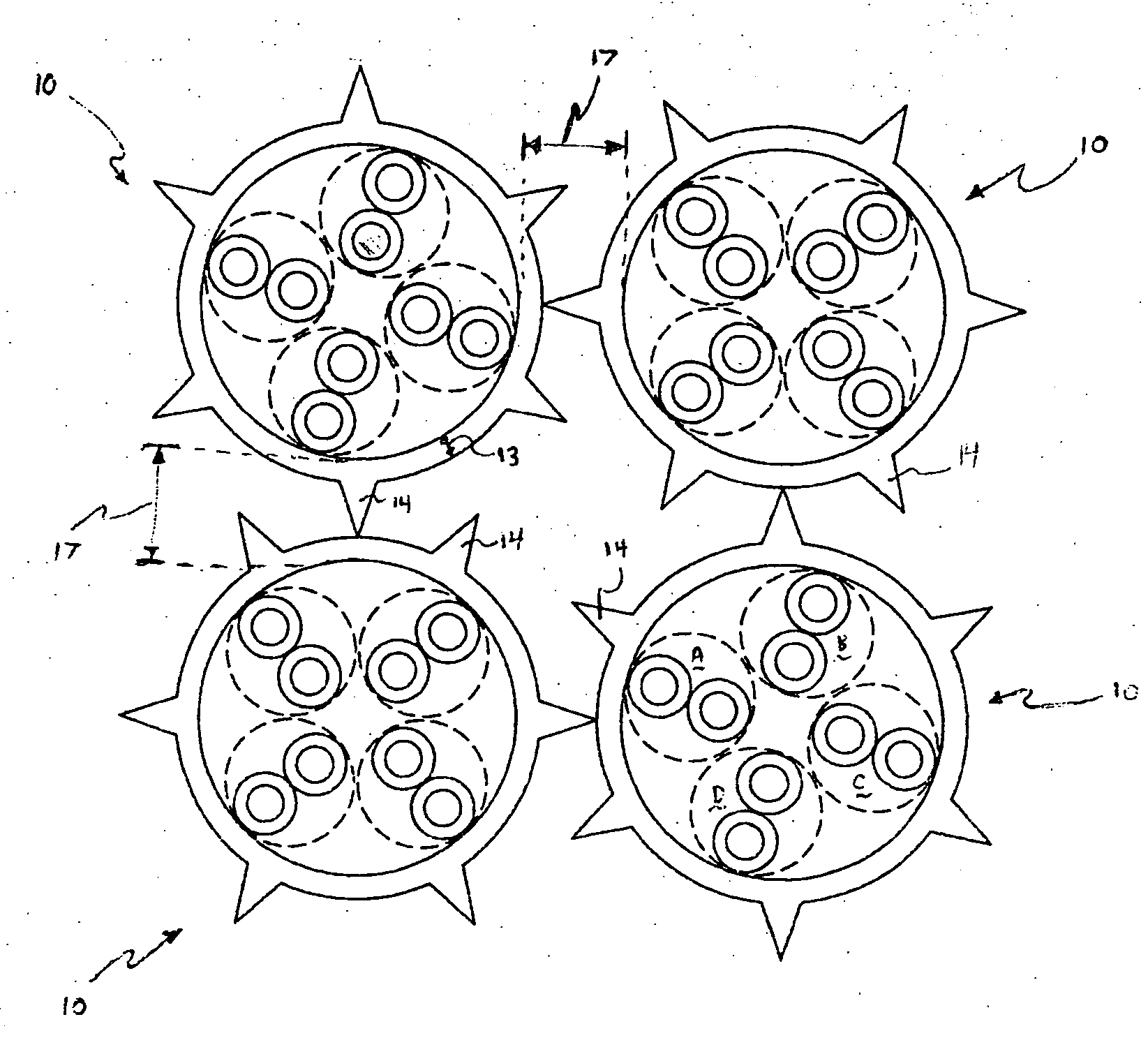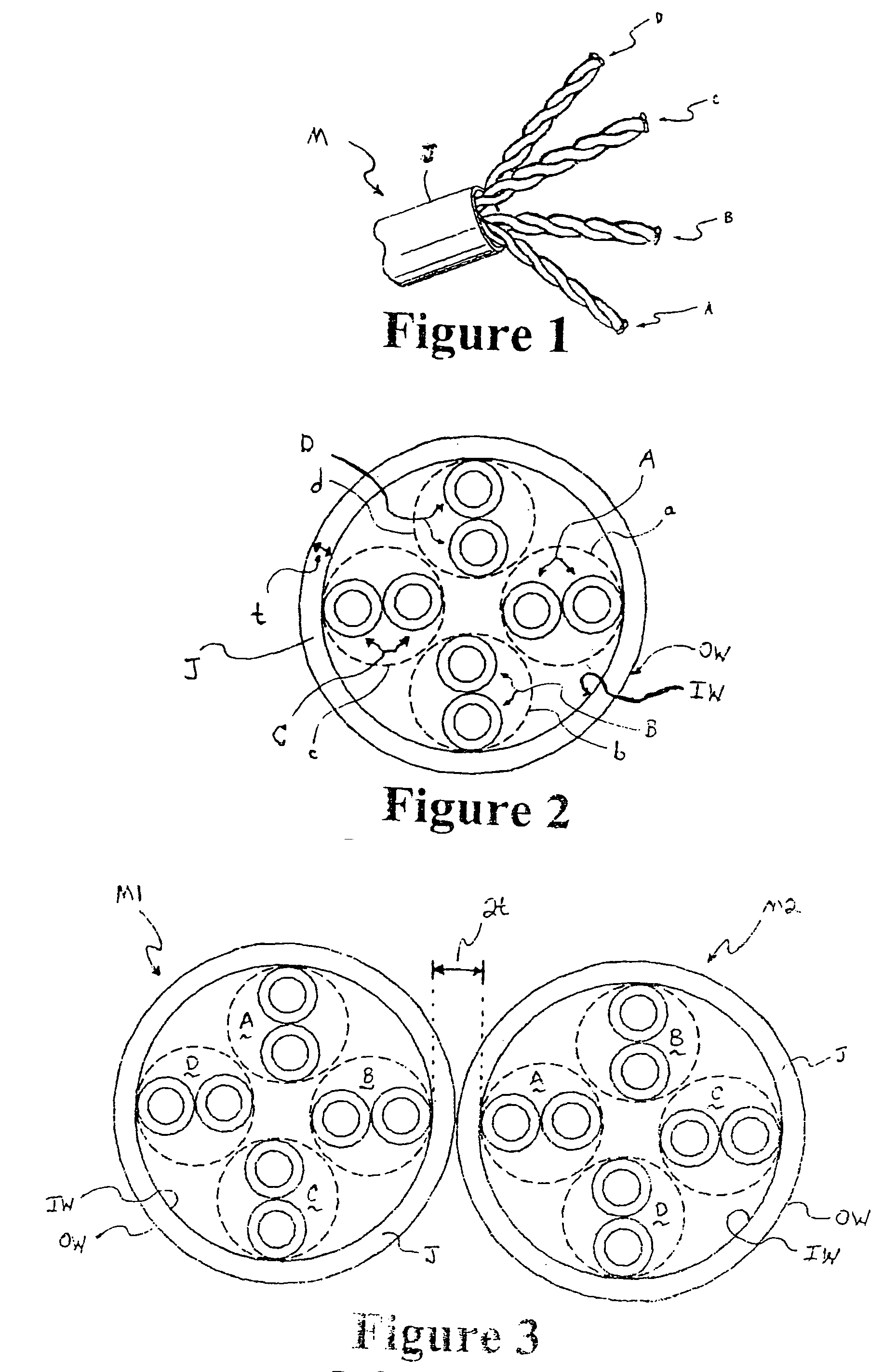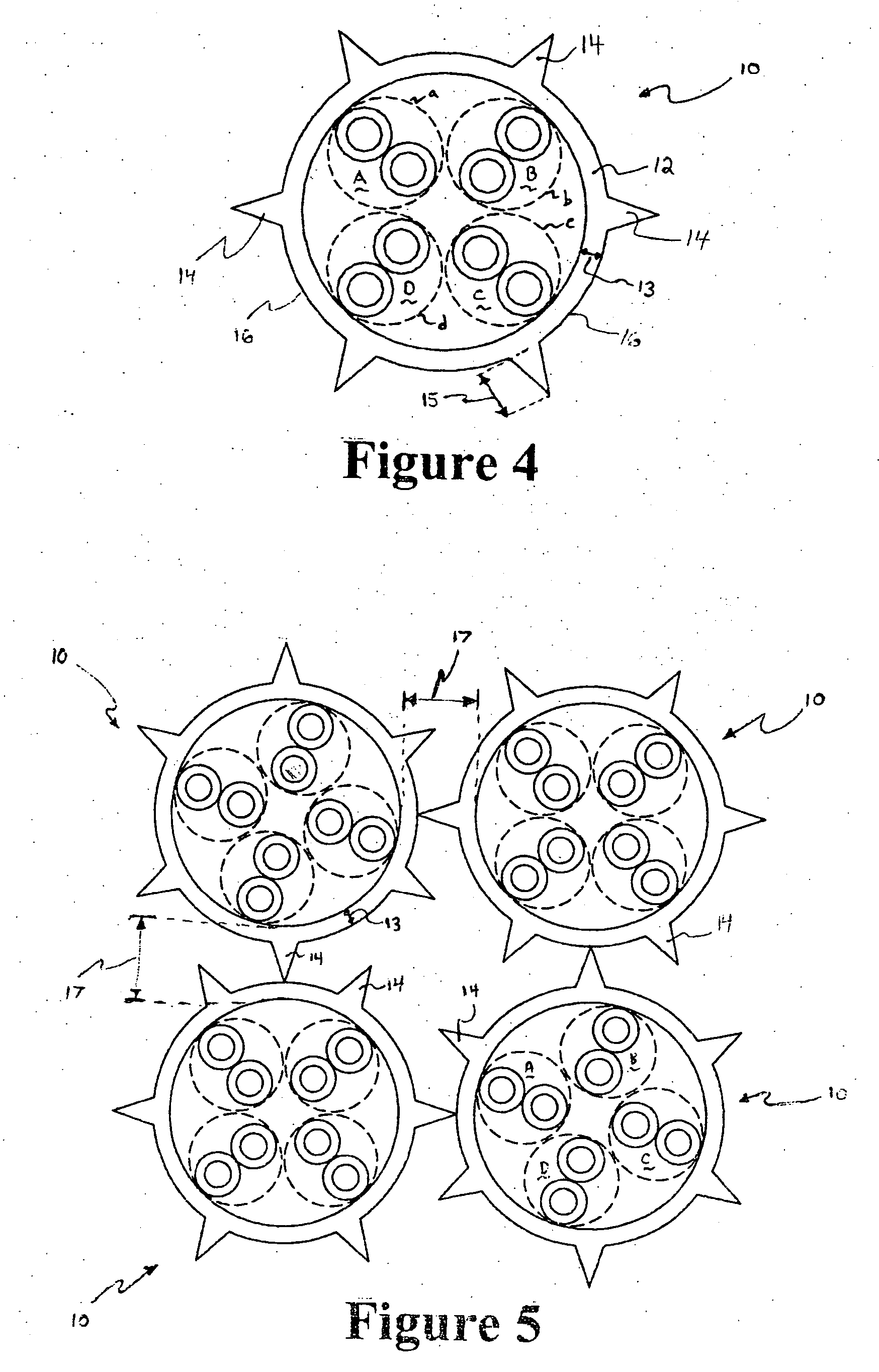Finned jackets for LAN cables
a technology of lan cables and jackets, applied in the field of jackets, can solve the problems of increasing the cost of cable and network, complicating the manufacturing process, and compound dielectric properties, and achieve the effects of improving attenuation and crosstalk performance, reducing attenuation and crosstalk characteristics, and improving alien crosstalk and attenuation performan
- Summary
- Abstract
- Description
- Claims
- Application Information
AI Technical Summary
Benefits of technology
Problems solved by technology
Method used
Image
Examples
first embodiment
[0033]FIG. 4 is a cross sectional view of a cable 10, in accordance with the present invention. The cable 10 includes the first, second, third and fourth twisted wire pairs A, B, C and D, which are the same or similar to the twisted wire pairs illustrated in FIGS. 1-3.
[0034] The cable 10 includes a jacket 12. The jacket 12 may be formed of a smoke or fire retardant material, such as a PVC compound. A thickness 13 of the jacket 12 is preferably about 20 mils.
[0035] A plurality of protrusions 14 is formed on an outer circumferential wall 16 of the jacket 12. The protrusions 14 have a triangular shape and a thickness 15, which is preferably about 30 mils. The protrusions 14 extend radially outward, away from a center of the cable 10. The protrusions 14 may be integrally formed with the jacket 12 during an initial extrusion process to form the jacket 12.
[0036] Although FIG. 4 illustrates six protrusions 14 integrally formed with the jacket 12, it should be noted that more or less prot...
second embodiment
[0039]FIG. 6 is a cross sectional view of a cable 20, in accordance with the present invention. The cable 20 includes the first, second, third and fourth twisted wire pairs A, B, C and D, which are the same or similar to the twisted wire pairs illustrated in FIGS. 1-3.
[0040] The cable 20 includes a jacket 22. The jacket 22 may be formed of a smoke or fire retardant material, such as a PVC compound. A thickness 23 of the jacket 22 is preferably about 20 mils.
[0041] A plurality of protrusions 24 is formed on an outer circumferential wall 26 of the jacket 22. The protrusions 24 have a rectangular shape and a thickness 25, which is preferably about 30 mils. The protrusions 24 extend radially outward, away from a center of the cable 20. The protrusions 24 may be integrally formed with the jacket 22 during an initial extrusion process to form the jacket 22.
[0042] Although FIG. 6 illustrates six protrusions 24 integrally formed with the jacket 22, it should be noted that more or less pro...
third embodiment
[0045]FIG. 8 is a cross sectional view of a cable 30, in accordance with the present invention. The cable 30 includes the first, second, third and fourth twisted wire pairs A, B, C and D, which are the same or similar to the twisted wire pairs illustrated in FIGS. 1-3.
[0046] The cable 30 includes a jacket 32. The jacket 32 may be formed of a smoke or fire retardant material, such as a PVC compound. A thickness 33 of the jacket 32 is preferably about 20 mils.
[0047] A plurality of protrusions 34 is formed on an inner circumferential wall 36 of the jacket 32. The protrusions 34 have a triangular shape and a thickness 35, which is preferably about 20 mils. The protrusions 34 extend radially inward, toward a center of the cable 30. The protrusions 34 may be integrally formed with the jacket 32 during an initial extrusion process to form the jacket 32.
[0048] Although FIG. 8 illustrates eight protrusions 34 integrally formed with the jacket 32, it should be noted that more or less protru...
PUM
| Property | Measurement | Unit |
|---|---|---|
| radial thickness | aaaaa | aaaaa |
| diameter | aaaaa | aaaaa |
| radial thickness | aaaaa | aaaaa |
Abstract
Description
Claims
Application Information
 Login to View More
Login to View More - R&D
- Intellectual Property
- Life Sciences
- Materials
- Tech Scout
- Unparalleled Data Quality
- Higher Quality Content
- 60% Fewer Hallucinations
Browse by: Latest US Patents, China's latest patents, Technical Efficacy Thesaurus, Application Domain, Technology Topic, Popular Technical Reports.
© 2025 PatSnap. All rights reserved.Legal|Privacy policy|Modern Slavery Act Transparency Statement|Sitemap|About US| Contact US: help@patsnap.com



